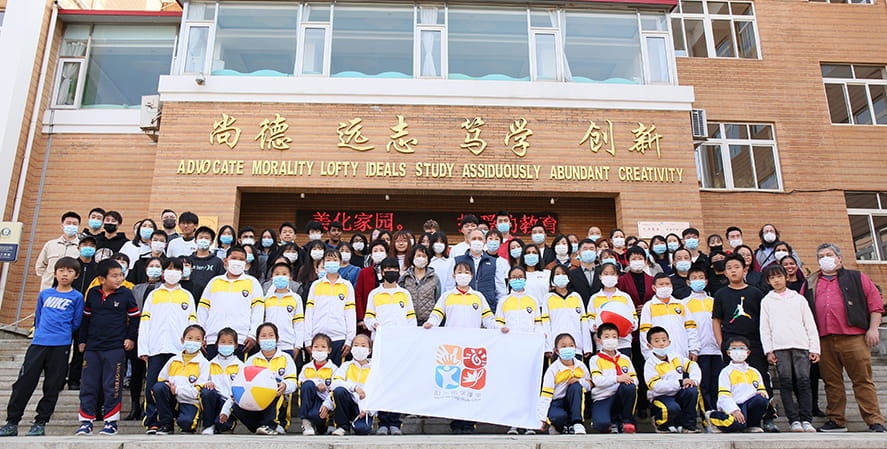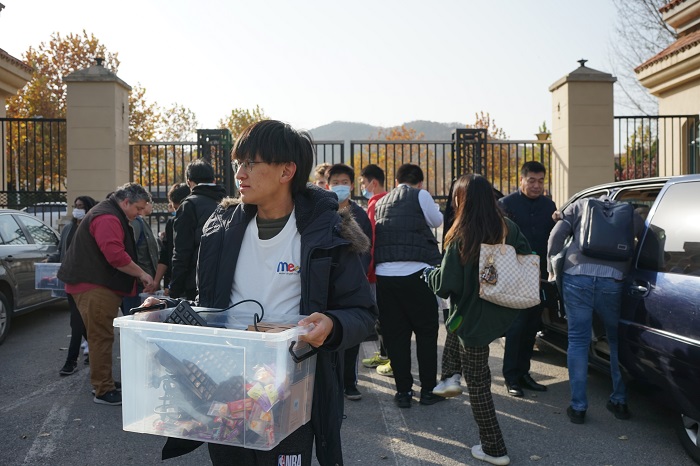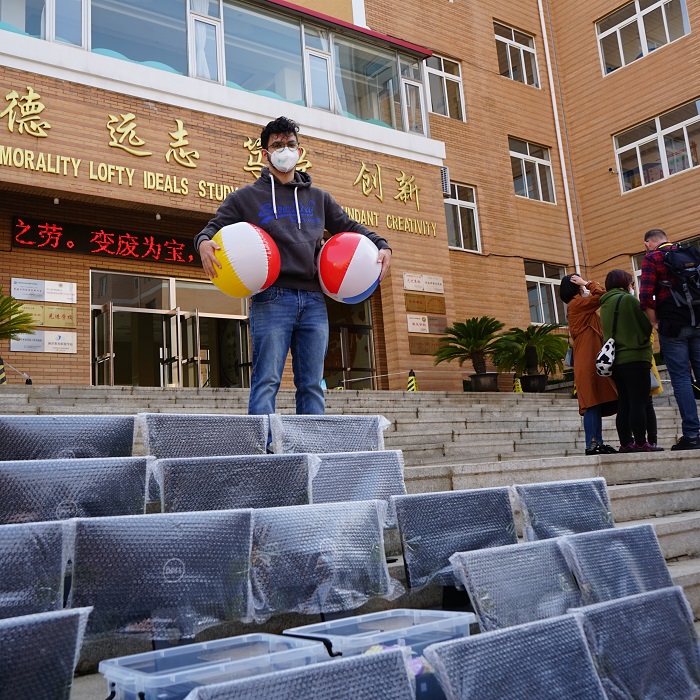We use cookies to improve your online experiences. To learn more and choose your cookies options, please refer to our cookie policy.
Open Days
Register for our Open Day

As the pandemic spread across the globe in early 2020, disrupting global trade, travel and healthcare, it also led to new and unprecedented challenges for educators, students and families. Skyrocketing cases led to school closures, shuttering learning institutions and pushing the bulk of education into online spaces. Although the online learning industry has been growing for some time, this sudden and massive test brought many of the limitations of digital schooling into stark relief. In those communities with access to plentiful digital resources, students missed the opportunity to socialize with peers and interact with teachers directly. International trips were cancelled and virtual explorations often paled in comparison. Vulnerable communities lost access to key student support services like school lunch programs and struggled to connect with students in homes with aging devices or limited access to the internet.
In the fall semester of the 2020-21 school year, a group of DAIS student leaders were tasked with developing ideas for service learning projects which would be attainable in this unique environment. In partnership with Dalian Mother Education Consulting Company (DMECC), a local social enterprise that facilitates volunteerism within the Dalian community, they began to research possibilities to develop a program. DMECC and DAIS engaged with local community organizations to identify local families who wished to connect their elementary-aged children to online learning possibilities, but were unable to access computers, educational services or, in some cases, an internet connection. Although the pandemic had precluded the possibility of DAIS students embarking on their traditional service learning trips, it also brought into focus the needs of communities in their own backyard. The timeliness of these needs created a sense of urgency in students, who set out to find a solution.

Part of the answer came in the form of a local branch of Accenture, the multi-national logistics and business services giant. The regional office brings hundreds of small desktop computers out of service each year, and those systems are generally destroyed due to security concerns. Recognizing the potential for these systems to be used in connecting learners and educators, the company offered to perform special refurbishment on small batches of these decommissioned systems if the DAIS community could facilitate their delivery and setup. DMECC recruited a group of teachers interested in supporting the program and drafted a plan to recruit additional students. With this final piece in place, the Accenture Computer Distribution Committee (ACDC) at DAIS was formed.
Student and teacher volunteers spent several weeks planning for a distribution event. Students attended peer-supported IT training, learned about the specific communities with whom they would be working, and assisted teachers in recruiting chaperones and planning the logistics of transporting dozens of members of the school community to local centers and family homes, while keeping within the social distancing guidelines set out by the regional education bureau. Students in one advisory volunteered their lunch times to assist in packaging each computer kit with the desktop, monitor, peripherals, webcams and candy for the young recipients.

On a cool morning in late October, a volunteer group set out from the DAIS campus to deliver the first round of desktops. DAIS students, teachers and a supporting team of parents and chaperones distributed the first round of 50 refurbished desktop computers to the homes of eager young language learners in two nearby communities. After a stop to introduce members of the ACDC to local community leaders, small teams of students joined recipient families in their homes to assist with installation and ensure familiarity with the new technology.
After the success of this initial collaboration, drawing upon resources from corporate and social enterprise, local community leaders and DAIS students, the ACDC members returned to school the following week eager for the next event. The small group of students had expanded into one composed of dozens, and their excitement for continuing the project was infectious.
One DMECC student leader, also a member of the DAIS student body, reflected on the opportunity to connect the school’s mission and values to meaningful work in the local community. “We got a chance to use the skills we have learned with DMECC and the values and problem solving from our classes at DAIS to make a difference for local people, together as a community of kids and teachers. It felt more natural than some of our other service learning trips, because these are local people facing a real problem that didn’t exist a few years ago in the way it does now.”
by Justin Sheehan
maker-space coordinator
Computer Science and Design Thinking teacher
Dalian American International School
Dalian, Liaoning, China